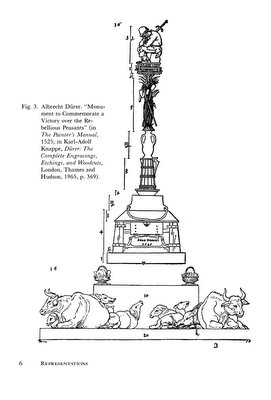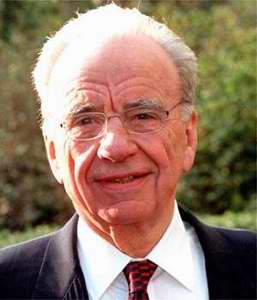Chabert points to the shameless opening address by
Director General Pascal Lamy at the latest WTO meeting:
"
You are the heirs of almost 60 years of tradition in trade negotiations, of a remarkable set of rules and decisions, and an impressive body of legal interpretations. You have also
inherited a well-oiled machine that oversees and ensures the implementation of a balanced system of
rights and obligations. You have every reason to be proud of the past achievements of your collective enterprise. So much for the past.
The current state of affairs is somewhat more heterogeneous. On the one hand, the day-to-day and dispute settlement activities are doing relatively well. Although the number of disputes has risen considerably, most of the decisions are respected and implemented, without recourse to retaliation — which speaks for the credibility of the dispute settlement mechanism. Only a handful of the more than 300 disputes submitted to the WTO since its creation in 1995 have not yet been resolved.
The negotiations part of your activities, on the other hand, could certainly be improved.
There is also a lot of room for improvement in public acceptance of the WTO, as there is in its marketing activities. The WTO — the crowds in and certainly outside this building will remind you with sound and sometimes
fury — is not the most popular international organization around, to say the least.
Even if it is famous throughout the world, the WTO is a very small business: its budget for 2006 is only 140 million US dollars — five times less than the budget of another international organization — FIFA — the Fédération Internationale de Football Association, for example (US$700 million), and almost ten times less than the budget of a famous NGO! I will certainly have to use your magic to see if we can get a more powerful engine for the WTO car, which is getting bigger and bigger, and now includes two newcomers, Saudi Arabia and Tonga.
As for the future of the WTO, it started in Doha in 2001 and it is up to you to decide, in this assembly, how you wish to fashion the years to come. If the WTO is to maintain and increase its current activities, then you must take a further step and commit yourselves to a new investment in the improvement of its rules, through the success of the current negotiations.
How do you decide on this collective investment? The WTO decision-making process, as you all know is, let us say, difficult. The difficulty stems from the fact that
all stakeholders — all of you — have decided that you have exactly the same right, no matter how big or small, no matter how powerful or weak, no matter how rich or poor you are: you all have the right to speak, the right to agree, the right to disagree. In sum, in spite of all criticism, the WTO decision-making process is democratic. If it were different, taking decisions on the negotiations would probably be easier. But it would not be as legitimate. Reaching agreement in the WTO is difficult because it is done bottom-up — and it is good this is so. It takes more time, it is more burdensome and cumbersome, but I am convinced it remains the best way to take decisions that impact directly the lives of billions of people.
In short,
you should indeed be proud of this healthy and democratic common institution. But like any stakeholder, you should also look beyond your immediate needs, you should think prospectively, you should care about the future.
Let me tell you a little secret I learnt since I took office as Director-General: there is an apocryphal and funny Secretariat guide to the language of trade negotiators in the old GATT. This guide tells you that, in those years, when negotiators said “Mr Chairman, we seek a balanced agreement”, what they really meant was “this agreement had better contain everything we demand”; when the negotiators said “we have demonstrated flexibility”, they really meant “we have successfully concealed our intransigence”; and when the negotiators announced “we are prepared to make our contribution to an ambitious outcome”, they really meant “we will only support agreements where others make all the concessions — and we make none”! This attitude, as we all know, is part of our past.
This is the past because today,
what we really need are negotiators that are bold, open-minded and prepared to take some risks, as successful stakeholders. Ministers often face the difficult task of explaining to national constituencies that they have gained something in negotiations, even if the negotiating process is not over. The many people who benefit from open trade are usually politically silent, whereas those fewer who are affected by it can be politically very loud. We all understand the need of each and every delegation to take home some gain from trade negotiations.
The reality is that the true magic of these negotiations is to achieve results where all participants are winners, all will be able to declare victory. But for that, some risks must be taken. A popular Chinese proverb says “
If you don't go into the cave of the tiger, how will you get its cub?” — in other words: nothing ventured, nothing gained."
-Pascal Lamy
Lamy speaks to the WTO
stakeholders about policies. But people aren't mentioned, except for outbursts of fury, or as tigers or cubs to be hunted. These aren't people he talks about. They aren't even sub-human. The language used is as if people at the receiving end of these policies were a different biological entity. It's as if Wells' Martians were speaking of the invasion of Earth: "
that as men busied themselves about their various concerns they were scrutinised and studied, perhaps almost as narrowly as a man with a microscope might scrutinise the transient creatures that swarm and multiply in a drop of water."
But this talk of
stakeholders seemed familiar. Where had I heard this before?
Oh yes, in almost every communique from the university administration:
"Queen’s [administration] has established a working group to review key higher education issues and begin the process of preparing the university’s formal submission to Ontario’s Rae panel on Postsecondary Review......As the process moves forward, the working group will be talking to other
key stakeholders on campus and in the broader community."
-
The Queen’s Committee on the Rae Review on [privatizing] Higher Education [further]Elites used to use terms like 'citizen', or 'the public', as a fantasmal referrent that was said to have been consulted on the way to the exploitation of people. Now, such a a pretense at a universality (within a state) is dropped. It is only the mighty
stakeholders, the overseers, that matter.
On Wikipedia
'stakeholder' is defined as:
"originally a person who holds
money or other
property while its owner is being determined......In the last decades of the
20th century, the word "stakeholder" has evolved to mean a person or organisation that has a legitimate interest in a project or entity."
This legitimate vocal participant in bureacratic memos and communiques, the
stakeholder, is the new bureaucratic overman, it is the new public, the new citizen, the new species.













